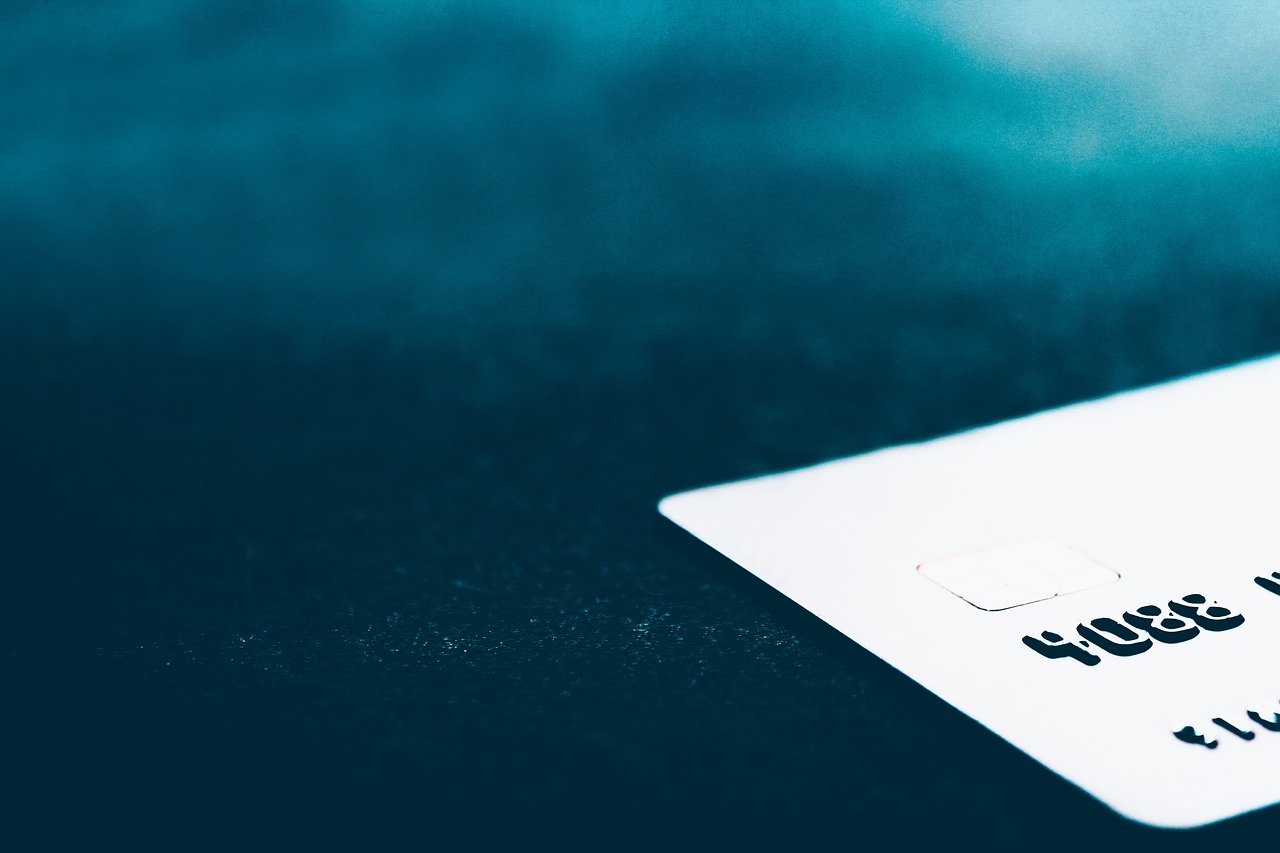How to Know If You Are Being Stalked Online?
In today's digital age, where our lives are often shared online, the risk of online stalking has become a pressing concern. Many people may not even realize they are being watched or monitored until it's too late. So, how can you tell if someone is invading your online privacy? The signs can be subtle, yet alarming. By understanding the warning signals and taking proactive steps, you can protect yourself from becoming a victim. Awareness is your first line of defense, and in this article, we will delve into the signs of online stalking, how to safeguard your digital footprint, and what actions to take if you suspect you're being targeted. Are you ready to take control of your online safety?
Identifying the early signs of online stalking can be challenging, especially since stalkers often operate in the shadows. However, there are common behaviors that can serve as red flags. For instance, if you notice someone repeatedly liking or commenting on your posts, even ones from years ago, it might indicate an unhealthy obsession. Additionally, if you receive unsolicited messages that make you uncomfortable, or if someone seems to know too much about your personal life, these can be significant indicators. The key is to trust your instincts—if something feels off, it probably is.
Online stalkers can vary significantly in their methods and motivations. Understanding these differences is crucial for recognizing potential threats. From obsessive ex-partners to strangers lurking on social media, each type of stalker has unique characteristics. For example, some may use fake profiles to gain access to your information, while others might employ more direct methods like sending threatening messages. It's essential to be aware of these types to better protect yourself.
Obsession and revenge stalking involve individuals who feel wronged or rejected. These stalkers are often driven by deep-seated emotional issues, leading them to fixate on their victims. This fixation can manifest in various ways, such as constant messaging, attempts to contact friends or family, or even creating fake accounts to monitor your activities. Understanding the psychological motivations behind such behaviors can help you identify when someone is crossing the line.
Recognizing the signs of obsession stalking can help you take action early. Some behaviors to watch out for include:
- Excessive Messaging: Receiving numerous messages, especially if they become increasingly intense or personal.
- Social Media Monitoring: Noticing that someone is always commenting on or liking your posts, often within seconds of them being published.
- Invasive Questions: Being asked about your whereabouts or personal life in a way that feels uncomfortable.
If you encounter these behaviors, it’s essential to take them seriously and consider your safety.
Revenge stalking often stems from a desire for retaliation. This type of stalking can be particularly dangerous as the stalker may feel justified in their actions. Typical indicators include:
- Harassment through Online Platforms: Receiving threatening messages or comments on social media.
- Attempts to Damage Your Reputation: Spreading false information about you online or trying to ruin your relationships.
- Creating Fake Accounts: Using fake profiles to harass or intimidate you.
If you notice any of these signs, it’s crucial to document everything and seek help.
Stranger stalking often involves unknown individuals targeting victims online. This behavior can be fueled by the anonymity that the internet provides, allowing stalkers to feel emboldened. The overlap between stalking and cyberbullying is significant, as both involve harassment and manipulation. If you find yourself being targeted by someone you do not know, it's essential to act quickly and protect your online presence.
Taking proactive measures can help safeguard your online presence. Here are some practical tips and strategies to enhance your privacy and reduce the risk of being stalked:
Adjusting your privacy settings on social media platforms is crucial. Make sure to:
- Review who can see your posts and personal information.
- Limit friend requests to people you know personally.
- Utilize two-factor authentication to secure your accounts.
These steps can significantly reduce the chances of unwanted attention.
Being aware of red flags in online communications is vital. Look out for:
- Inconsistent Stories: If someone’s narrative keeps changing, it could be a sign of deceit.
- Overly Personal Questions: Be cautious if someone you barely know is asking invasive questions.
- Pressure to Meet: If someone is pushing for a face-to-face meeting too soon, it’s a major red flag.
By staying vigilant and trusting your gut, you can better protect yourself from potential stalkers.
Q: What should I do if I suspect I am being stalked online?
A: Document all interactions and consider reporting the behavior to the platform and local authorities.
Q: Can I block someone who is stalking me?
A: Yes, blocking the individual on social media and other platforms can help protect your privacy.
Q: Are there legal actions I can take against an online stalker?
A: Yes, consult with legal professionals to explore options such as restraining orders or harassment charges.

Recognizing the Signs of Online Stalking
Identifying the early signs of online stalking can feel like trying to find a needle in a haystack. However, being aware of certain behaviors can help you protect yourself before things escalate. One of the most alarming signs is when someone starts to exhibit an unusual level of interest in your online activities. For instance, if you notice that a particular individual is consistently liking or commenting on your posts, even those that are several months old, it could be a red flag. This obsessive behavior can often be accompanied by other signs, such as frequent messages or sudden friend requests from unknown accounts.
Another indicator is when someone seems to know too much about your personal life, especially if you haven’t shared that information directly with them. Imagine sharing a casual post about your weekend plans, only to receive a message from a stranger referencing those plans. This kind of knowledge can be unsettling and is often a sign that someone is keeping tabs on you. Additionally, if you find that your social media accounts are being followed by multiple fake profiles, this may indicate that someone is trying to monitor your activity without revealing their true identity.
It’s also crucial to pay attention to your gut feelings. If you feel uneasy about someone’s online presence or interactions with you, don’t brush it off. Trust your instincts! Sometimes, the most telling sign of online stalking is that nagging feeling that something just isn’t right. In some cases, stalkers may even attempt to manipulate you into sharing more information about yourself. This could come in the form of overly friendly messages that quickly turn invasive, asking for personal details that you would typically keep private.
To help you better understand these behaviors, here’s a quick overview of some common signs of online stalking:
- Excessive Messaging: Receiving an overwhelming number of messages, especially if they become more aggressive or demanding.
- Invasive Questions: Someone asking personal questions that you haven’t shared publicly.
- Fake Profiles: Multiple accounts following or interacting with you that appear suspicious.
- Monitoring Your Posts: Commenting on or liking posts that are old or unrelated to the current conversation.
- Unsolicited Attention: Receiving gifts, messages, or requests for personal meetings without prior consent.
Recognizing these signs early can be crucial in taking the necessary steps to protect yourself. Remember, online stalking is not just a figment of your imagination; it’s a real issue that can have serious consequences. If you suspect that you are being stalked online, it's essential to take action immediately. Document the behaviors, adjust your privacy settings, and consider reaching out to trusted friends or authorities for support. The sooner you act, the safer you can feel in your online space.

Understanding the Different Types of Online Stalkers
When it comes to online stalking, it's essential to recognize that not all stalkers are the same. Each one has unique motivations and methods that can make their behavior particularly insidious. Understanding these different types can empower you to take the necessary precautions and respond effectively if you find yourself targeted. Think of it like a spectrum; on one end, you have those who are driven by obsession, while on the other, you have individuals who engage in stalking purely out of malice or revenge.
One common type of online stalker is the obsessive ex-partner. These individuals often struggle to move on after a breakup and may resort to monitoring their former partner's online activities. They might obsessively check your social media accounts, send you numerous messages, or even create fake profiles to stay connected. Their fixation can lead to a cycle of emotional distress for the victim, as they may feel trapped in a situation where their personal life is under constant scrutiny.
On the other side of the spectrum, we have revenge stalkers. These stalkers typically feel wronged or rejected and resort to online harassment as a means of retaliation. Their tactics can range from spreading rumors to sending threatening messages. The psychological motivations behind revenge stalking often stem from feelings of inadequacy or anger, and the anonymity of the internet can embolden such behaviors. Victims of revenge stalking may find themselves facing significant emotional and reputational harm.
Another alarming category is stranger stalkers. Unlike the previously mentioned types, these individuals often have no prior connection to their victims. They may use social media platforms to target unsuspecting individuals, leveraging the anonymity of the internet to engage in predatory behavior. This type of stalking can overlap with cyberbullying, where the stalker seeks to intimidate or humiliate their victim in a public forum. The internet provides a breeding ground for such behaviors, making it crucial to stay vigilant and aware of your online interactions.
In summary, understanding the different types of online stalkers is vital for recognizing the risks associated with your online presence. Whether it's an obsessive ex, a revengeful former partner, or a complete stranger, each stalker type has distinct behaviors and motivations. By identifying these patterns, you can take proactive steps to protect yourself and your privacy online. Remember, awareness is your first line of defense.

Obsession and Revenge Stalking
When we talk about , we delve into a dark realm of human emotions that can lead to dangerous behaviors. These types of stalking often stem from feelings of rejection, betrayal, or a perceived injustice. Imagine a relationship that has ended, and one party can't let go; they may start to monitor your online presence obsessively. This is not just a passing phase—it's a deep-seated fixation that can escalate quickly. The psychological motivations behind such behaviors can be complex, but they often revolve around a need for control or a desire to inflict pain in response to real or imagined wrongs.
Individuals engaged in obsession stalking might exhibit behaviors that range from harmless curiosity to outright harassment. For example, they may send you a barrage of messages on social media, comment excessively on your posts, or try to infiltrate your friend groups to gather information about you. It's as if they're trying to weave themselves into the fabric of your life, despite your clear desire for distance. In some cases, they might even create fake profiles to keep tabs on your activities without revealing their identity. This kind of behavior can feel suffocating and invasive, making it crucial to recognize the signs early.
On the other hand, revenge stalking is often fueled by a desire for retaliation. If someone feels wronged—perhaps after a breakup or a fallout—they may resort to online harassment as a means of getting back at you. This can manifest in various ways, including:
- Harassment through direct messages or comments that are derogatory or threatening.
- Spreading false information about you online, aiming to damage your reputation.
- Creating fake accounts to impersonate you or to further their agenda against you.
Both obsession and revenge stalkers can be incredibly resourceful, using the anonymity of the internet to their advantage. They often exploit social media platforms, where personal information is readily available. This makes it all the more important to remain vigilant about what you share online. If you find yourself in a situation where someone is exhibiting these behaviors, it's essential to take them seriously. Documenting incidents, blocking the individual, and reporting their actions to the appropriate platforms can help you regain control of your online space.
In summary, understanding the nuances of obsession and revenge stalking is vital for anyone navigating the complex world of online interactions. Recognizing the signs early can empower you to take action before the situation escalates. Always remember, your safety and mental well-being should be your top priority.
Q: What should I do if I suspect someone is stalking me online?
A: Start by documenting any suspicious behavior, such as messages or comments. Block the individual on all platforms and consider reporting their behavior to the relevant authorities or social media platforms.
Q: How can I protect my privacy on social media?
A: Regularly review and adjust your privacy settings. Limit who can see your posts and personal information. Be cautious about accepting friend requests from unknown individuals.
Q: Is online stalking illegal?
A: Yes, online stalking can be illegal, depending on the jurisdiction. Many places have laws against harassment and stalking, even in digital spaces.
Q: Can I get help if I feel threatened by an online stalker?
A: Absolutely! Seek help from local law enforcement, support groups, or legal advisors who specialize in harassment cases. You don't have to face this alone.

Signs of Obsession Stalking
When it comes to obsession stalking, the signs can be subtle yet alarming. An individual who is fixated on you may exhibit behaviors that start off as seemingly innocent but escalate into something more concerning. For instance, if you notice someone sending you a flurry of messages at all hours, it could be a red flag. This kind of excessive communication often indicates that the person is unable to respect your boundaries. Imagine receiving dozens of texts every day, each one more frantic than the last, as if they are trying to keep a constant line of communication open, regardless of your response.
Another significant sign is their tendency to monitor your social media activity. If you find that someone is always the first to comment on your posts or seems to know details about your life that you haven't shared with them directly, this could indicate an unhealthy level of interest. It's as if they have a magnifying glass over your online presence, scrutinizing every detail. They might even create fake accounts to follow you, making it difficult to identify their true intentions.
Moreover, obsession stalkers often display possessive behavior. This can manifest in various ways, such as becoming jealous of your friends or questioning your interactions with others. For example, if someone constantly asks about your whereabouts or expresses anger when you spend time with other people, it signals an unhealthy fixation. Their need for control can be overwhelming, making you feel trapped in a web of their emotions.
In some cases, obsession stalkers may resort to more invasive actions, such as showing up unexpectedly at places they know you frequent. This can be incredibly unsettling, as it blurs the lines of personal space and privacy. If you’re encountering someone who seems to know your routine too well or appears at events where you didn’t expect to see them, it’s crucial to take this seriously.
To help you better understand the signs of obsession stalking, here’s a quick reference table:
| Behavior | Description |
|---|---|
| Excessive Messaging | Sending numerous texts or calls, often at odd hours. |
| Social Media Monitoring | Constantly commenting or liking your posts, often using fake accounts. |
| Possessiveness | Showing jealousy over your friendships and questioning your interactions. |
| Unannounced Appearances | Showing up at places you frequent without prior notice. |
Recognizing these signs early on is essential for your safety. If you feel that someone’s attention has crossed the line from admiration to obsession, it’s vital to take action. Trust your instincts—if something feels off, it probably is. The sooner you address these behaviors, the better you can protect yourself from potential harm.
In conclusion, being aware of the signs of obsession stalking can empower you to take control of your online and offline life. Remember, your safety and peace of mind should always come first.
- What should I do if I suspect I'm being stalked online? Start by documenting any suspicious behavior and consider adjusting your privacy settings on social media. If the situation escalates, don't hesitate to reach out to law enforcement.
- Can I block someone who is stalking me? Yes, blocking someone on social media or through your phone can be an effective way to cut off communication and limit their access to your information.
- Is online stalking a crime? Yes, online stalking can be considered a crime, and many jurisdictions have laws in place to protect victims. It's important to report any threatening behavior to the authorities.

Indicators of Revenge Stalking
Revenge stalking is a troubling phenomenon that often stems from feelings of betrayal or anger. If you suspect someone is targeting you out of a desire for retaliation, it's essential to recognize the indicators early on. One of the most common signs is persistent harassment through various online platforms. This can manifest as an overwhelming number of messages, comments, or posts aimed at you, often with the intention of provoking a reaction or instilling fear.
Another key indicator is the manipulation of your online reputation. This might involve the stalker spreading false information about you, posting derogatory comments, or even creating fake profiles to impersonate you. Such actions are designed to damage your credibility and social standing, which can be incredibly damaging in both personal and professional contexts.
Additionally, monitoring your online activity can be a clear sign of revenge stalking. If you notice someone consistently commenting on your posts or engaging with your content in a way that feels invasive, it may be a tactic used to keep tabs on you. This behavior often escalates as the stalker becomes more fixated, leading to a cycle of intimidation and distress.
Moreover, revenge stalkers may also resort to threatening behavior. This could be direct threats made through messages or indirect threats conveyed through public posts. It's crucial to take any threats seriously, as they can escalate quickly. If you ever feel unsafe, reaching out for help should be your immediate priority.
In summary, the indicators of revenge stalking can vary widely, but being aware of these signs is essential for your safety. If you find yourself facing any of these situations, it’s vital to document everything and consider taking steps to protect yourself, such as adjusting your privacy settings or seeking legal advice.
- What should I do if I suspect I'm being stalked online? If you believe you are a victim of online stalking, document all interactions and consider reporting the behavior to the platform and local authorities.
- Can I prevent online stalking? Yes, by enhancing your privacy settings, being cautious about what you share online, and recognizing red flags in online interactions, you can reduce the risk of being stalked.
- Is revenge stalking illegal? Yes, revenge stalking can be considered a criminal offense, and victims should seek legal assistance to understand their rights and options.

Stranger Stalking and Cyberbullying
Stranger stalking is a chilling phenomenon where individuals, often completely unknown to the victim, engage in persistent and invasive online behavior. This type of stalking is fueled by the anonymity that the internet provides, making it easier for stalkers to hide behind screens while targeting unsuspecting individuals. Unlike traditional stalking, where the perpetrator may be someone from the victim's life, stranger stalking can feel like an unpredictable storm, striking without warning and leaving victims feeling vulnerable and exposed.
In many cases, stranger stalkers utilize social media platforms, forums, and other online spaces to gather information about their targets. They may lurk in the shadows, observing everything from your posts to your comments, and even your interactions with friends. This behavior can quickly escalate, leading to harassment, threats, and even doxxing—where personal information is shared publicly with malicious intent. The internet, while a place for connection and community, can also become a breeding ground for harmful behaviors.
Cyberbullying often overlaps with stranger stalking, as both involve the use of technology to intimidate or harass individuals. The motivations behind cyberbullying can vary greatly, ranging from jealousy and revenge to a desire for power and control. Victims of cyberbullying may find themselves targeted by anonymous accounts, receiving hurtful messages, or facing public humiliation through the sharing of embarrassing content. This form of harassment can be particularly damaging, as it often occurs in a very public space, amplifying the victim's distress.
To illustrate the differences and similarities between stranger stalking and cyberbullying, consider the following table:
| Aspect | Stranger Stalking | Cyberbullying |
|---|---|---|
| Perpetrator | Unknown individual | Known or unknown peers |
| Motivation | Obsession, control | Revenge, jealousy |
| Methods | Monitoring, harassment | Insults, threats, public humiliation |
| Impact on Victim | Fear, anxiety, feeling unsafe | Emotional distress, isolation, depression |
Understanding the dynamics of stranger stalking and cyberbullying is crucial for anyone who uses the internet. It’s essential to remain vigilant and recognize the signs of such behaviors. If you notice someone frequently commenting on your posts in a negative way or sending you unsolicited messages, these could be red flags. Remember, you have the right to protect yourself online, and taking action against such behaviors is not just important for your safety, but also for your peace of mind.
In conclusion, stranger stalking and cyberbullying are serious issues that can leave lasting impacts on victims. By being aware of the signs and understanding the motivations behind these actions, individuals can better equip themselves to navigate the online world safely. If you ever feel threatened or uncomfortable, don’t hesitate to reach out for help or report the behavior to the appropriate authorities.
- What should I do if I think I'm being stalked online? If you suspect you are being stalked, document all interactions, adjust your privacy settings, and consider reporting the behavior to the platform or law enforcement.
- Can I block a stalker on social media? Yes, most social media platforms allow you to block users, preventing them from seeing your profile or contacting you.
- How can I enhance my online privacy? Regularly update your privacy settings, avoid sharing personal information publicly, and be cautious about friend requests from unknown individuals.
- Is online stalking a crime? Yes, online stalking can be considered a crime, and there are laws in place to protect victims. It's important to report any threatening behavior.

Protecting Yourself from Online Stalking
In today's digital age, where our lives are increasingly intertwined with technology, protecting yourself from online stalking is more important than ever. The first step in safeguarding your online presence is to become aware of the risks and take proactive measures. By being vigilant and informed, you can significantly reduce your chances of becoming a target. Start by regularly reviewing your online profiles and understanding who has access to your personal information.
One of the most effective ways to shield yourself is by enhancing your privacy settings across all social media platforms. Most platforms offer customizable privacy options that allow you to control who can see your posts, send you messages, or even find you through search engines. For instance, you can set your profiles to private, ensuring that only approved friends can view your content. Additionally, consider regularly auditing your friend lists and removing any connections that seem suspicious or that you no longer interact with.
Another crucial aspect of protecting yourself is recognizing red flags in online interactions. Be on the lookout for signs that someone might be crossing boundaries. For example, if a person you barely know begins to comment excessively on your posts or sends you numerous direct messages, it could indicate an unhealthy interest. Trust your instincts—if something feels off, it probably is. It's essential to maintain a healthy skepticism about online interactions, especially with individuals you haven't met in person.
| Action | Description |
|---|---|
| Adjust Privacy Settings | Limit who can see your posts and personal information. |
| Monitor Friend Lists | Regularly review and remove suspicious contacts. |
| Be Cautious with Personal Information | Avoid sharing sensitive details like your location or contact info. |
| Report Suspicious Behavior | Use platform tools to report harassment or stalking. |
Additionally, consider using strong, unique passwords for your accounts and enable two-factor authentication wherever possible. This extra layer of security can act as a formidable barrier against unauthorized access. If you suspect that someone is stalking you online, document the behavior. Take screenshots of any threatening messages or posts, as this evidence can be crucial if you decide to report the individual to the authorities.
Ultimately, protecting yourself from online stalking is about being proactive and aware. By taking these steps, you not only safeguard your personal information but also empower yourself to take control of your online experience. Remember, the internet can be a fantastic place for connection and community, but it can also harbor risks. Stay vigilant, trust your instincts, and don't hesitate to seek help if you feel threatened.
Q: What should I do if I think I'm being stalked online?
A: If you suspect online stalking, document any suspicious behavior, adjust your privacy settings, and consider reporting the individual to the platform or authorities.
Q: How can I enhance my privacy on social media?
A: You can enhance your privacy by setting your profiles to private, limiting friend requests, and regularly reviewing your friend list.
Q: Is it safe to share personal information online?
A: It's advisable to be cautious with personal information. Avoid sharing sensitive details like your address or phone number publicly.
Q: What are the signs of online stalking?
A: Signs include excessive messaging, unwanted comments on your posts, and attempts to monitor your online activities.

Enhancing Your Privacy Settings
In today’s digital age, where social media and online interactions are a part of our daily lives, has become more crucial than ever. Imagine your online presence as your home; would you leave your front door wide open for anyone to walk in? Probably not! Similarly, you need to ensure that your online doors are securely locked. The first step in safeguarding your online identity is to review and adjust the privacy settings on your social media accounts. Most platforms offer a range of options that allow you to control who can see your posts, send you messages, or even find your profile through search engines.
For instance, on platforms like Facebook, you can limit your audience for posts, restrict friend requests to only those you know, and even manage who can look you up using your email or phone number. Here’s a quick breakdown of privacy settings you should consider:
| Platform | Key Privacy Settings |
|---|---|
| Limit post audience, restrict friend requests, disable search by email/phone | |
| Set account to private, approve followers, control comments | |
| Protect tweets, manage who can send you direct messages, block unwanted accounts |
Additionally, it’s essential to review your friend list and connections regularly. You might be surprised to find that you have accepted friend requests from people you barely know. Consider removing anyone who doesn’t add value to your online experience. Remember, less is more when it comes to online connections!
Another critical aspect of enhancing your privacy is being cautious about the information you share. Think before you post! Even seemingly harmless details, like your location or daily routines, can be pieced together by someone with malicious intent. Avoid sharing sensitive information such as your phone number, address, or financial details unless absolutely necessary.
Lastly, consider enabling two-factor authentication (2FA) on your accounts. This added layer of security makes it much harder for someone to gain unauthorized access to your profile. With 2FA, even if someone manages to steal your password, they won’t be able to log in without the second form of verification, which often comes in the form of a text message or authentication app.
In conclusion, taking the time to enhance your privacy settings is a proactive step toward protecting yourself from online stalking. It may seem tedious, but the peace of mind that comes from knowing your online presence is secure is well worth the effort. Remember, being vigilant and informed is your best defense against potential threats in the digital world.
- What should I do if I suspect I'm being stalked online? If you feel threatened, document the behavior and consider reporting it to the platform and local authorities.
- Can I block someone who is stalking me? Yes, most social media platforms have options to block users and restrict their ability to contact you.
- How can I tell if my privacy settings are adequate? Regularly review your settings and check for updates or changes from the platform regarding privacy policies.

Recognizing Red Flags in Online Interactions
When navigating the vast landscape of the internet, it’s essential to keep your eyes peeled for potential threats, particularly in online interactions. Just like in real life, where you might get a gut feeling about someone, the same applies online. Trusting your instincts can be a lifesaver. So, what should you look out for? Here are some key red flags that could indicate someone is not just being friendly but may have ulterior motives.
First off, if someone is overly eager to share personal information about themselves while showing little interest in your life, that’s a classic warning sign. It’s like having a conversation with someone who wants to take but never gives. This one-sided interaction can feel uncomfortable, and it’s crucial to recognize when the balance is off. Look for patterns of behavior where the other person seems to be gathering information about you without reciprocating. If they know more about your life than you do about theirs, it’s time to be cautious.
Another significant red flag is when someone exhibits excessive curiosity about your daily activities. For instance, if they constantly ask where you are, who you’re with, or what you’re doing, it might signal an unhealthy fixation. This behavior can escalate quickly, transforming from innocent curiosity into something much more invasive. You might feel like you’re being watched, and that’s not a comfortable position to be in. Remember, healthy relationships—online or offline—should be built on mutual respect and trust, not surveillance.
Furthermore, if you notice a pattern of unsolicited compliments or flattery that feels over-the-top, it could be a tactic to manipulate your feelings. This is often a way individuals try to gain your trust or lower your defenses. While compliments can be nice, if they come too frequently or feel insincere, it’s worth questioning the motives behind them. Sometimes, people use flattery as a means to an end, and that end might not be as innocent as it seems.
Also, pay attention to how someone reacts if you set boundaries. If you mention that you’re uncomfortable with certain topics or requests, and they persist or become defensive, that’s a huge red flag. Healthy interactions require mutual respect for each other’s limits. If someone disregards your feelings and continues to push, it’s a clear indication that they may not have your best interests at heart.
Finally, be wary of individuals who create a sense of urgency or pressure you into making decisions quickly. This tactic is often used by manipulators to cloud your judgment and prevent you from thinking things through. Whether it’s pushing you to share personal information or to meet in person, this pressure can lead to dangerous situations. Always take your time, and never feel rushed to comply with someone else’s timeline.
In summary, recognizing these red flags can help you navigate online interactions safely. Always trust your instincts, prioritize your comfort, and remember that it’s perfectly okay to distance yourself from someone who makes you feel uneasy. Your safety and peace of mind should always come first.
- What should I do if I suspect I'm being stalked online?
If you feel threatened, document the behavior, adjust your privacy settings, and consider reporting the individual to the platform or local authorities. - How can I enhance my online privacy?
Regularly update your privacy settings, be cautious about what you share online, and use strong, unique passwords for your accounts. - Are there specific platforms where stalking is more common?
While stalking can occur on any platform, social media and messaging apps are often the most common venues due to their interactive nature.
Frequently Asked Questions
- What are the signs that I might be a victim of online stalking?
Some common signs include receiving excessive messages, noticing someone monitoring your social media activity, or feeling uncomfortable about someone knowing too much personal information about you. If you feel like someone is constantly watching or following your online presence, it’s important to take those feelings seriously.
- How can I differentiate between online stalking and general online harassment?
Online stalking typically involves a pattern of obsessive behavior from an individual who seeks to monitor or control your online interactions. In contrast, general online harassment can be more sporadic and may not involve the same level of fixation. If someone is persistently targeting you with threats or unwanted attention, it may cross into stalking territory.
- What types of online stalkers exist?
Online stalkers can vary widely, including obsessive ex-partners, strangers who use anonymity to harass, and individuals who may engage in revenge stalking due to perceived wrongs. Understanding these profiles can help you identify potential threats and take action.
- What steps can I take to protect myself from online stalking?
Enhancing your privacy settings on social media platforms is crucial. Limit who can see your information and be cautious about accepting friend requests from unknown individuals. Additionally, regularly monitoring your online presence and being aware of red flags in interactions can help you stay safe.
- What should I do if I suspect I am being stalked online?
If you suspect you are being stalked, document any suspicious interactions and consider blocking the individual. You may also want to report the behavior to the platform you are using. In severe cases, seeking legal advice or contacting local authorities can provide additional support and protection.
- Can online stalking affect my mental health?
Absolutely. The fear and anxiety that come with being stalked online can lead to significant emotional distress. It's essential to talk to someone you trust or a mental health professional if you're feeling overwhelmed or unsafe.
- Is it possible to completely eliminate the risk of online stalking?
While it's challenging to eliminate all risks, you can significantly reduce your vulnerability by being proactive about your online privacy. Regularly updating your security settings, being mindful of what you share, and staying informed about potential threats can help keep you safer.



















